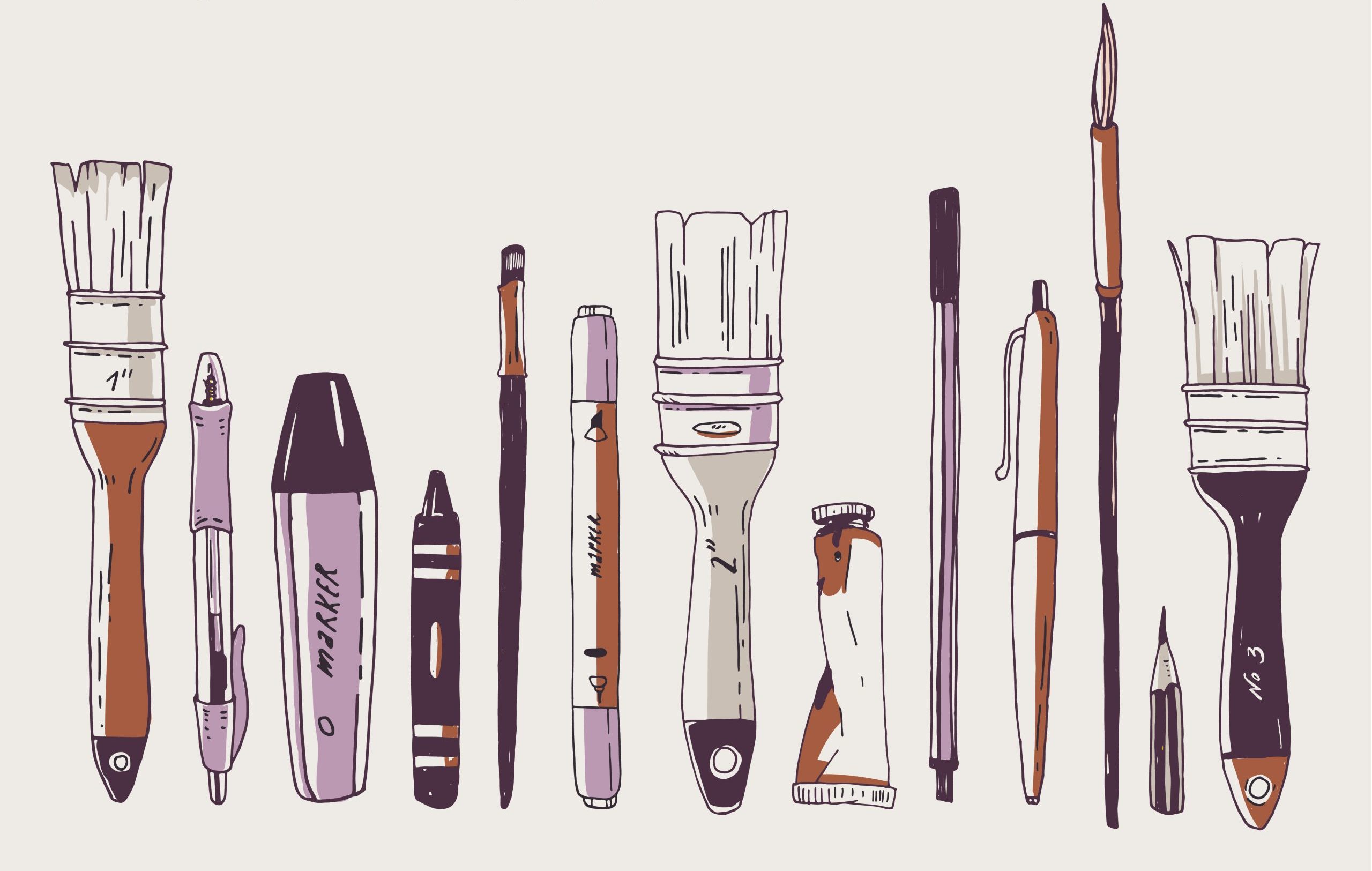Today marks the annual occasion for World Art Day, a global celebration that highlights the importance and joy of art.
Created in 2012, World Art Day is a relatively new event that offers both artists and admirers to learn, appreciate or simply talk about creativity and art.
However, for some it may seem ‘just another’ pointless global day and we must admit, we can see why. With countless pressing matters taking place in the world right now, it’s easy to forget creativity’s place:
“There are many other things that are of utmost importance […] – healthcare, policymaking, peace talks, mental health. And yet, art is connected to all these spheres”
– ART, World Art Day: Now more important than ever
As a creative marketing agency, here at Crush we foster the philosophy that World Art Day is more than just a day, but a thread that runs through each and every day of our lives.
So, why is art so important?
At its core, art is universal. It transcends language, borders and culture, connecting with people across the globe – whether they’re fellow creatives or not.
This connectivity is not just about emotion, but a form of communication that cannot be achieved with words. Through art, we can chronicle history, embody societal values, and comment on political or social events, as well as using it as therapy and self-expression.
It could also be argued that art’s impact is at its most powerful within education. Year after year, research shows that art increases young people’s confidence and motivation, not only improving well-being and school attendance, but also motor, language, social, decision-making, risk-taking, and inventiveness skills.
This attitude is also reflected in the French education system, where they adopt a strong emphasis on art education at an early age.
“French children who learn to draw before words have the power to solve problems on their own through painting. The secret of French education […] lies in the lifestyle of art.”
– Class101, The secret of French art education to make thinking children
The result? France has one of the best education systems in the world.
Art is creativity, and creativity is for everyone
A common misconception of art is that it is just for the talented, but when talent is so subjective, how can that be? The idea that creativity is a human trait, gifted to the select few, is what makes it under-appreciated – because people don’t view it as relevant to them.
However, as art education proves, there is a creative hidden inside everyone. It is the fear of being creative that makes it inaccessible, despite the common saying that ‘art has no rules’, we struggle to carry this idea out. This is also a notion reflected in Elizabeth Gilbert’s infamous book Big Magic, delving into the secrets of creativity:
“Big Magic exemplifie[s] the idea of being creative for the sake of creativity, not acceptance, recognition, or reward.”
Creativity within business
It can be a common notion to undervalue the creative arts sector within the business world. After all, art is subjective, and hard to pin down to a singular value. This poses a problem for a world so focused on the numbers.
However, creativity is vital in business. It’s often forgotten that creativity is innovation, and innovation is what drives some of the most successful industries – just look at how technological inventions have changed the world in the last 20 years.
Speaking with one of our young designers here at Crush, Naomi, we can learn more about how creatives find their place in business:

“When I studied Illustration at university, people often said, ‘That’s great! But you won’t get a job’. To me, it seems that art is viewed positively when it’s just a hobby, but as soon as it becomes a career choice people think of it as ‘unstable’, ‘pointless’ and ‘risky’.
The thing with art and creativity that people forget is that it’s not just for people who can draw or think of new ideas, and it’s not limited to the creative sector.
After all, if there are no job prospects to be gained from studying art, then why do businesses need design departments or agencies like the team here at Crush?”
Our take
Throughout time, art has been the constant; it’s even possible that it’s the oldest form of language in the world. In today’s modern world, that fact must not be forgotten. Valuing the creative sector is essential to building a well-rounded society, and business model, and more importantly it’s critical to the essence of human expression.
Thus, the question is not about if art is important after all, but if we see that importance.
